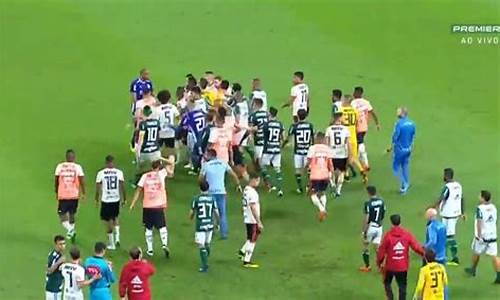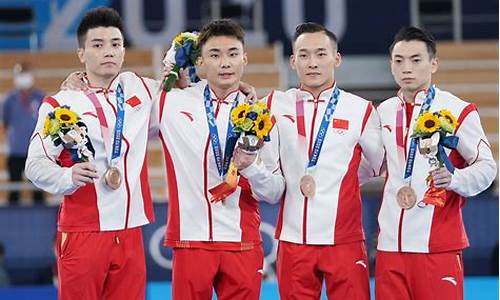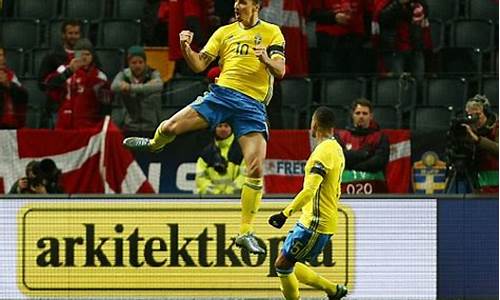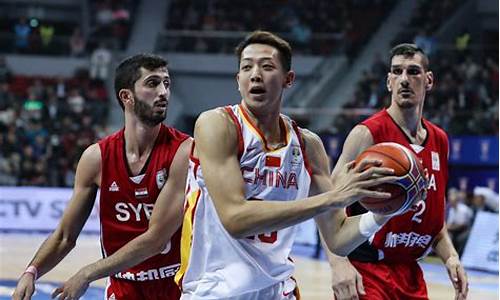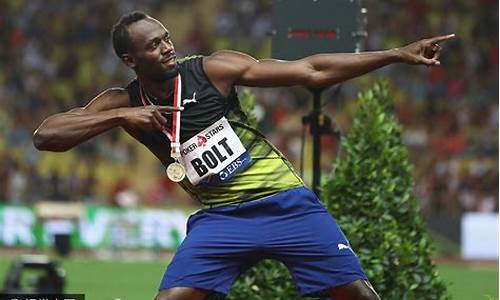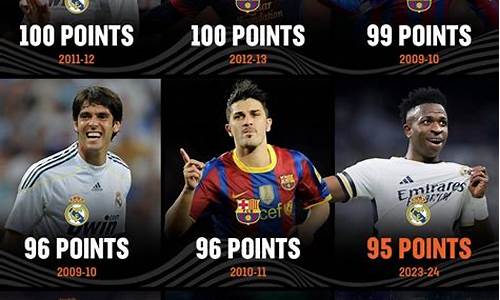奥运会的题目英语版-奥运会相关知识英语版带解释
谁有关于奥运会的英语小短文啊?要一分钟内可以念完的!!

08奥运的英语短文
The 29th Olympic Games will be held in Beijing, China in 2008. Beijing chooses five friendlies as Olympic mascots. They are Beibei, Jingjing, Huanhuan, Yingying and Nini. They mean “Welcome to Beijing”. The Blue Beibei is a fish, the black Jingjing is a panda, the red Huanhuan is the Olympic flame, the yellow Yingying is the Tibetan antelope and the green Nini is a swallow.They carry a message of friendship and peace—the blessings from the Chinese to the people from all over the word.
The and people of China have always admired the purposes and principles of the Olympic spirit and supported the efforts made by the Olympics in promoting world peace. The Chinese and people are doing our utmost in preparation for the 2008 Olympics in Beijing. It is our hope to make it a grand gathering that will carry forward the Olympic spirit, promote world peace and enhance the friendship among people of the world, so that the Olympic spirit will flourish once again, this time in China, an oriental country with an ancient civilization.
I am looking forward the Beijing Olympics on August 8, 2008 very much. This is the opening ceremony of the Beijing Olympic Games, and the day the world sports family gathering together, as well as the day Chinese people are really proud of.
翻译
2008年,第29届奥运会将在中国北京举行。北京选择了五个友好的形象作为奥运会的吉祥物。它们是贝贝,晶晶,欢欢,迎迎和妮妮。它们的意思是:“北京欢迎你”。蓝色的贝贝是条鱼,黑色的晶晶是只熊猫,红色的欢欢是奥运圣火,**的迎迎是藏羚羊,绿色的妮妮是只燕子。它们传递着友谊和和平——这是中国人民对世界的祝福。
中国人民一向赞赏奥林匹克精神的宗旨和原则,支持奥林匹克运动为促进世界和平所做的努力。中国政府和中国人民正全力以赴,做好2008年北京奥运会的筹备工作,力争把2008年奥运会办成一次弘扬奥林匹克精神、促进世界和平、增进各国人民友谊的盛会,让奥林匹克精神在中国这一东方文明古国 再次得到发扬。
我盼望着2008年8月8日快点到来。这是北京奥运会开幕的日子,是世界体育大家庭聚会北京的日子,更是每一个中国人倍感骄傲的日子。
介绍奥运会的英语作文带翻译有哪些?
介绍奥运会的英语作文带翻译如下:
"The Games of the 29th Olympiad in 2008 are awarded to the city of Beijing."
“2008年第29届奥运会授予北京市。”
The International Olympic Committee selected the Chinese capital as the 2008 host in Friday's vote during Juan Antonio Samaranch's last IOC session as president.The attraction of staging the Games in a country which has the world's largest population, as well as huge economic potential, won the IOC's heart.
在胡安·安东尼奥·萨马兰奇担任主席的最后一次国际奥委会会议上,国际奥委会在周五的投票中选择了中国首都作为2008年的主办国。在世界上人口最多、经济潜力巨大的国家举办奥运会的吸引力赢得了国际奥委会的心。
Beijing defeated four other bidding cities, including Toronto and Paris, to secure the country's first-ever Olympics. Osaka was the first city to go out, and it only took one more round for Beijing to win the Olympic race.
北京击败了其他四个申办城市,包括多伦多和巴黎,以确保该国首次举办奥运会。大阪是第一个走出去的城市,北京只花了一轮就赢得了奥运会比赛。
The announcement, read out by the 81-year-old Samaranch, was answered with wild jubilation from the Chinese delegation in Moscow, and with fireworks in Beijing.IOC senior member Kim Un-Yong said after the voting that Beijing deserved the Olympic Games.
81岁的萨马兰奇宣读了这一声明,在莫斯科的中国代表团以热烈的欢呼和北京的焰火回应。国际奥委会高级委员金文勇在投票后说,北京理应获得奥运会。
"Beijing is capable of staging a great Olympic Games," said the 71-year-old South Korean. "The result wasn't a surprise to me."
“北京有能力举办一届伟大的奥运会,”这位71岁的韩国人说。“结果对我来说并不意外。”
With the motto "New Beijing, Great Olympics", Beijing promises to host a "Green Olympics", a "Hi-tech Olympics" and the "People's Olympics".
北京以“新北京、新奥运”为口号,承诺举办“绿色奥运”、“科技奥运”和“人文奥运”。
The 3,000-year-old city is becoming a truly international city and showing a new, vigorous image through its ongoing economic reforms.
这座拥有3000年历史的城市正在成为一座真正的国际城市,并通过持续的经济改革展现出一种新的、充满活力的形象。
Beijing enjoys the widest popular support among the five bidding cities. A Gallup opinion poll commissioned by the showed 94.9 percent of the public in favor of it.?
北京在五个申办城市中享有最广泛的民意支持。政府委托盖洛普公司进行的民意调查显示,94.9%的公众支持该法案。
The IOC's own surveys found support even higher. The Chinese has pledged to spend 20 billion U.S. dollars building sports complexes and refurbishing the Beijing infrastructure.?
国际奥委会自己的调查发现支持率更高。中国政府已承诺斥资200亿美元建设体育场馆和翻新北京的基础设施。
There are plans for a new exhibition center with twin skyscrapers that could be taller than any in the world.
有人计划建造一个新的展览中心,其中有两座摩天大楼,可能比世界上任何一座都高。
一篇关于奥运会的英语短文 急用!~~
the Olympic Games are international sports competitions where athletes play in many different kinds of games 奥林匹克是国际级的运动竞赛,在这里运动员参加不同的项目Sone athletes take part in the Winter Olympics.Some take part in the Summer Olympic.有些运动员参加冬运会,有些运动员参加夏运会Olympic Games are very old with very interesting histories. 奥林匹克有着古老而有有趣的历史
The first Olympic Games was held in Greece in the sixth century B.C.第一届奥运会是在公元前6世纪,在希腊开办的The contests were held every four years in summer.奥运会每四年举办一次The first games lasted just one day.第一届只举办了一天there was only one contest which was a short race.只有一个竞赛项目,短跑only greek men were allowed to run in the race,and no non-greeks wereallowed to run in the race.只有希腊男人可以参加,不是的一律不可以no women were allowed to appear.女士也不行they were allowed neither to watch nor to run in the race.她们既不可以观看,也不可以参加there were more contests later.后来有了更多的项目china sent its first team nearly 70years ago and won the first gold medal in the 1984 los angeles games.中国在70年前成立了第一支奥运代表队,在1984年洛衫基奥运会上,中国得了一块金牌the 2008 olympics will be held in beijing.it's great chance for china to show itself .2008年奥运会将在北京举行,这是中国展示自己的好机会china is the largest developing country and it has opened the door to the whole world.中国是最大的发展中国家,并已经向世界开放the 2008 olympic games will provide a large stage foe people from different countries to understand each other better.08年奥运会给不同国家的人门提供了一个互相了解的舞台it's also a very good chance for the chinese public to know more about olympic spirits:swifter,higher and stronger.它同时也是一个让中国公众了解奥林匹克精神:更快更高更强 的好机会the chinese people must make a contribution to getting ready for the coming olympic games.(over)中国人民一定要为准备好奥运会做出最大的贡献
奥运会英语版
The Olympic Games or Olympics is an international multi-sport event taking place every four years and comprising summer and winter games. Beginning in 776 BC, they were originally held in Olympia, Greece until 393 AD. In 1896, they were revived by a French nobleman, Pierre Frèdy, Baron de Coubertin, thus beginning the era of the Modern Olympic Games.
The Summer Olympics (Games of the Olympiad) have been held every fourth year starting in 1896, except in 1916, 1940, and 1944 due to the World Wars. Greece and Australia are the only nations to have attended every Summer Olympics.
An event specifically for winter sports, the Olympic Winter Games, was first held in 1924. The first winter Olympics competitions were held as a non-Olympic sports festival, but were declared to be official Games by the International Olympic Committee in 1925. Originally these were held in the same year as the Summer Olympics, but from 1994 (the Lillehammer Games) the Winter Games and the Summer Games have been held two years apart. The Summer Olympics are more prominent and anticipated than the Winter Olympics.
Ancient Olympics
There are many legends surrounding the origin of the ancient Olympic Games. One of these associates the first Games with the ancient Greek concept of εκεχειρ?α (ekecheiria) or Olympic Truce. The date of the Games' inception based on the count of years in Olympiads is reconstructed as 776 BC, although scholars' opinions diverge between dates as early as 884 BC and as late as 704 BC.
From then on, the Games quickly became much more important throughout ancient Greece, reaching their zenith in the sixth and fifth centuries BC. The Olympics were of fundamental religious importance, contests alternating with sacrifices and ceremonies honouring both Zeus (whose colossal statue stood at Olympia), and Pelops, divine hero and mythical king of Olympia famous for his legendary chariot race, in whose honour the games were held. The number of events increased to twenty, and the celebration was spread over several days. Winners of the events were greatly admired and were immortalised in poems and statues. The Games were held every four years, and the period between two celebrations became known as an 'Olympiad'. The Greeks used Olympiads as one of their methods to count years. The most famous Olympic athlete lived in these times: the sixth century BC wrestler Milo of Croton is the only athlete in history to win a victory in six Olympics.
The Games gradually declined in importance as the Romans gained power in Greece. When Christianity became the official religion of the Roman Empire, the Olympic Games were seen as a pagan festival and in discord with Christian ethics, and in 393 AD the emperor Theodosius I outlawed the Olympics, ending a thousand-year tradition.
During the ancient times normally only young men could participate. Competitors were usually naked, not only as the weather was appropriate but also as the festival was meant to be, in part, a celebration of the achievements of the human body. Upon winning the games, the victor would have not only the prestige of being in first place but would also be presented with a crown of olive leaves. The olive branch is a sign of hope and peace.
During competition for some of the events, many of the participants would use oils to keep their skin smooth, as well as provide an appealing lustre to anyone who saw them. Even though the bearing of a torch formed an integral aspect of Greek ceremonies, the ancient Olympic Games did not include it, nor was there a symbol formed by interconnecting rings. These Olympic symbols were introduced as part of the modern Olympic Games.
According to legend, King Ifitos of Elis, seeking to establish peace among warring Greeks, visited the Oracle of Delphi. There, he was advised to break the cycle of conflict every four years by replacing war with friendly athletic competition. Ifitos sought the cooperation of Kings Lycourgos of Sparta and Cleosthenes of Pisa. They agreed to a truce called “Ekeheiria” and organized the first Olympic Games at Olympia. Fighting ceased from 12 days before until 12 days after the Games, allowing athletes, artists, and spectators to travel to Olympia, participate in the Olympic Games and return to their homelands in peace.
In the early seventeenth century, an "Olympick Games" sports festival was run for several years at Chipping Campden in the English Cotswolds, and the present day local Cotswold Games trace their origin to this festival. In 1850, an "Olympian" sports festival was begun at Much Wenlock in Shropshire, England, which also continues to this day as the Wenlock Olympian Society Annual Games. Later, similar events were organised in France and Greece, but these were all small-scale and certainly not international.
The interest in reviving the Olympics as an international event grew when the ruins of ancient Olympia were uncovered by German archaeologists in the mid-nineteenth century. At the same time, Baron Pierre de Coubertin was searching for a reason for the French defeat in the Franco-Prussian War (1870–1871). He thought the reason was that the French had not received proper physical education, and sought to improve this. Coubertin also sought a way to bring nations closer together, to have the youth of the world compete in sports, rather than fight in war. In 1890 he attended a festival of the Wenlock Olympian Society, and decided that the recovery of the Olympic Games would achieve both of his goals.
In a congress at the Sorbonne University, in Paris, held from June 16 to June 23, 1894 he presented his ideas to an international audience. On the last day of the congress, it was decided that the first modern Olympic Games would take place in 1896 in Athens, in the country of their birth. To organise the Games, the International Olympic Committee (IOC) was established, with the Greek Demetrius Vikelas as its first president.
The total number of athletes at the the first modern Olympic Games, less than 250, seems small by modern standards, but the games were the largest international sports event ever held until that time. The Greek officials and public were also very enthusiastic, and they even proposed to have the monopoly of organizing the Olympics. The IOC decided differently, however, and the second Olympic Games took place in Paris, France. Paris was also the first Olympic Games where women were allowed to compete.
Modern Olympics
After the initial success, the Olympics struggled. The celebrations in Paris (1900) and St. Louis (1904) were overshadowed by the world's fair exhibitions in which they were included. The so-called Intercalated Games (because of their off-year status, as 1906 is not divisible by four) were held in 1906 in Athens, as the first of an alternating series of Athens-held Olympics. '''''Although''''' originally the IOC recognised and supported these games, they are currently not recognised by the IOC as Olympic Games, which has given rise to the explanation that they were intended to mark the 10th anniversary of the modern Olympics. The 1906 Games again attracted a broad international field of participants — in 1904, 80% had been American — and great public interest, thereby marking the beginning of a rise in popularity and size of the Games.
Growth
From the 241 participants from 14 nations in 1896, the Games grew to nearly 11,100 competitors from 202 countries at the 2004 Summer Olympics in Athens. The number of competitors at the Winter Olympics is much smaller than at the Summer Games; at the 2002 Winter Olympics in Salt Lake City, 2,400 athletes from 77 countries competed in 78 events.
The Olympics are one of the largest media events. In Sydney in 2000 there were over 16,000 broadcasters and journalists, and an estimated 3.8 billion viewers watched the games on television. The growth of the Olympics is one of the largest problems the Olympics face today. Although allowing professional athletes and attracting sponsorships from major international companies solved financial problems in the 1980s, the large number of athletes, media and spectators makes it difficult and expensive for host cities to organize the Olympics.
求英语作文不少于100词题目是:2012奥运会开幕式、我的快乐假期(要写做家务、学习)、2012奥运会作文X2
开幕式
Summer Olympic Games in London is by far the highest number of host cities. Is also the history's first three cities hosting the Olympic Games for the first time: 1908 London Olympic Games; second time: the 1948 London Olympic Games; third time: the 2012 London Olympics.
In July 2001 they lost to Beijing, missed the 2008 Summer Olympics. However, they soon recovered from the shadow of defeat came, confidently announced to the 2012 Olympic Games bid. In the five candidate cities, they are considered the largest popular cities.
After waiting a period of nearly suffocated people, after a 13-year-old ethnic Chinese Singaporean girls to put the outcome of the letter handed over to Roger. Rogge thanked the host, the people of Singapore, after the application of national and five candidate cities, to the world loudly announced: the 30th Summer Olympic Games are in London.
在伦敦夏季奥运会是迄今为止数量最多的主办城市。也是历史上的第一次三座城市申办奥运会以来首次:1908年伦敦奥运会;第二次:1948年伦敦奥运会;第三次:2012年伦敦奥运会。
2001年7月,他们输给了北京,错过了2008年夏季奥运会。然而,他们很快就恢复过来了失败的阴影来临,自信地宣布2012年奥运会的投标。在五个候选城市,他们被认为是最大的热门城市。
在等待一段几乎窒息而的人,在一个13岁的华裔新加坡女孩把结果的信交给罗杰。罗格感谢东道国新加坡民众,在应用程序的国家和五个候选城市,世界大声宣布:30日在伦敦夏季奥运会。
我的快乐假期
I have a happy winter vacation. I stay at home and go to the countryside during the summer vacation.
At home, I do my homework. I watch TV, too. I love English Today. Because I like English very much. I also like “Tell it like it is”. I watch them everyday. Sometimes I play the computer. I can watch MV and learn English on the computer. I often clean my room.
I live in the countryside with my grandpa and my grandma. They are both sixty years old. In the countryside, I can do many interesting thing there. I play with dog. The dog is cute. I like fishing with my fiends. I really feel happy living in the countryside.
声明:本站所有文章资源内容,如无特殊说明或标注,均为采集网络资源。如若本站内容侵犯了原著者的合法权益,可联系本站删除。

